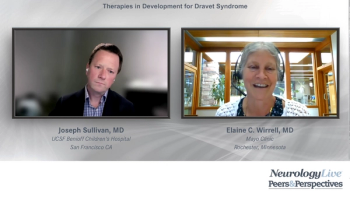
A discussion of new developments for the treatment of Dravet syndrome beyond seizure control including gene editing and therapy.

A discussion of new developments for the treatment of Dravet syndrome beyond seizure control including gene editing and therapy.
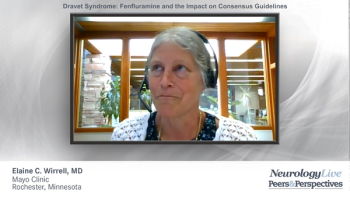
The impact of new drug approvals on the consensus guidelines for the treatment of Dravet syndrome.
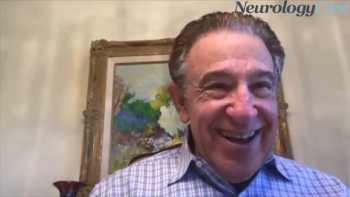
The neurologist from Banner Health and chief medical officer of the MS Association of America discussed how much a patients prognosis plays into the treatments utilized.
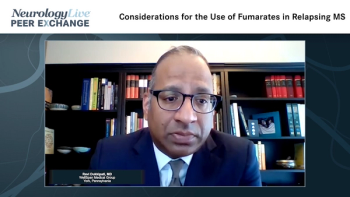
Experts in the field of multiple sclerosis provide insight into the fumarates as a viable oral option for relapsing MS.
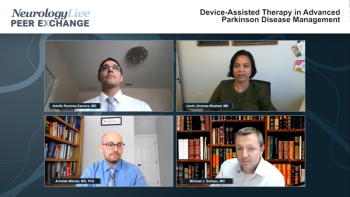
A discussion about when a clinician should consider discussing a device-assisted therapy with a patient with advanced Parkinson disease.
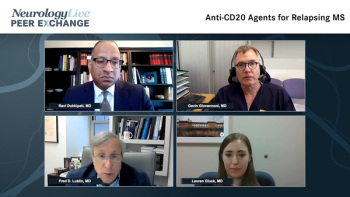
A panel of experts discuss the use of anti-CD20 monoclonal antibodies in relapsing multiple sclerosis including summaries of the phase III ORATORIO and ASCLEPIOS trials, for ocrelizumab and ofatumumab, respectively.
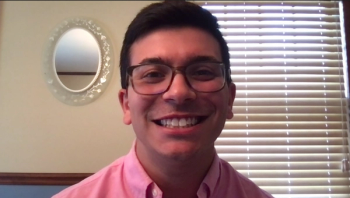
Neurology News Network for the week ending July 24, 2021.
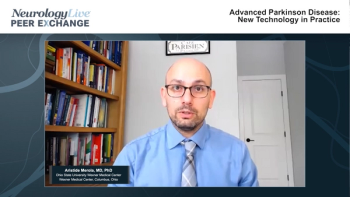
A discussion about when a clinician should consider discussing a device-assisted therapy with a patient with advanced Parkinson disease.
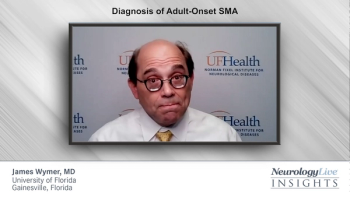
An overview of the diagnosis of spinal muscular atrophy, including prevalence, age of onset, and the role of genetic testing.
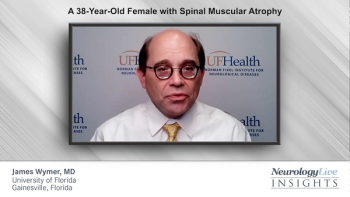
James Wymer, MD, provides a case overview of a 38-year-old female diagnosed with spinal muscular atrophy.
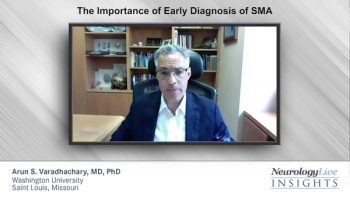
An expert neurologist, Arun S. Varadhachary, MD, PhD considers the diagnostic process for SMA and emphasizes the importance of early diagnosis to optimize care.

The director of the Montefiore Hudson Valley Center of Excellence for Alzheimer’s Disease commented on social determinants of health in relation to telemedicine and community willingness to engage.
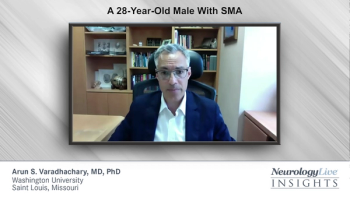
Arun S. Varadhachary, MD, PhD provides an overview of the case of a 28-year-old male with spinal muscular atrophy, describes the 4 main phenotypes of SMA, and considers how average age of onset impacts patient prognosis.
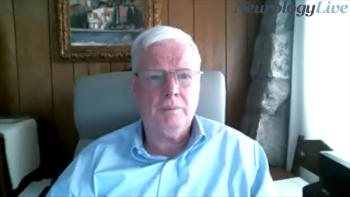
The director of the Sleep-Wake Disorders Center at Montefiore Medical Center discussed the adjustments clinicians and patients with sleep disorders made throughout the pandemic, including the increased use of telemedicine.

In Alzheimer disease and dementia, Jessica Zwerling, MD, MS, director, Montefiore Hudson Valley Center of Excellence for Alzheimer’s Disease, believes normalizing trial recruitment aids and telehealth to increase participation is another way to ease delivery of care.
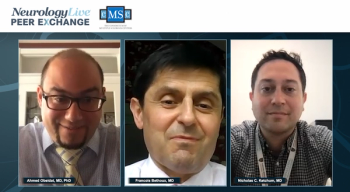
Ahmed Obeidat, MD, PhD; Francois Bethoux, MD; and Nicholas C. Ketchum, MD, discuss recent advancements and future directions in rehabilitation strategies for multiple sclerosis.
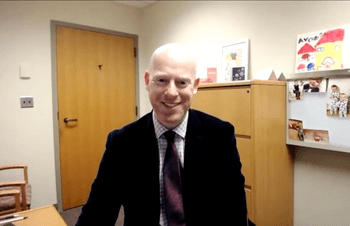
The associate professor of neurology at Mayo Clinic Rochester discusses technological advancements and research efforts in relation to differential multiple sclerosis.

The associate professor of neurology at Mayo Clinic Rochester, commented on biomarkers for identifying MS in patients, as well as the significance of new MS consensus guidelines.

The neurologist from Banner Health and chief medical officer of the MS Association of America discussed the ongoing debate of when to administer high efficacy treatments throughout the MS disease progression.

The associate professor of neurology at Mayo Clinic Rochester discusses the importance of alternative diagnoses and rarer presentations of MS, in order to avoid misdiagnoses and inappropriate treatment for patients.

The chief medical officer of Scholar Rock discussed the greatest areas of concern for patients with SMA and why most of these issues exist in the diagnostic stage.

John Brandsema, MD, and Julie Parsons, MD, review the evolution of combination therapy in clinical practice for the management of SMA.

Challenges surrounding the use of telehealth for patients with Alzheimer disease are affected by technological barriers, according to the associate director of the Montefiore Hudson Valley Center of Excellence for Alzheimer’s Disease
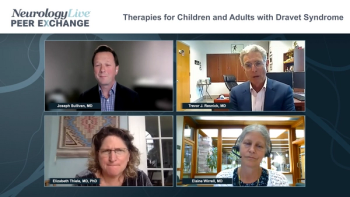
The panelists discuss the possibility of treating Dravet syndrome in older children and adults and the effects if the therapies were effective.

The director of the Montefiore Hudson Valley Center of Excellence for Alzheimer’s Disease discusses the use of telehealth for patients with Alzheimer disease during the COVID-19 pandemic, as well as her thoughts on why it is here to stay.
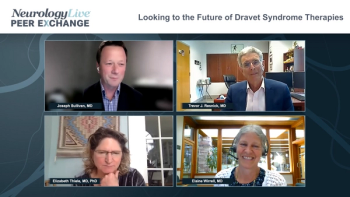
The panel discusses future gene therapies in development for Dravet syndrome.
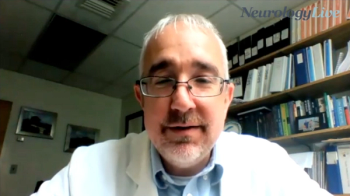
Following the development and publication of consensus guidelines for the use of MRI in MS, Scott D. Newsome, DO, discusses next steps in adopting and implementing protocols to improve patient care.
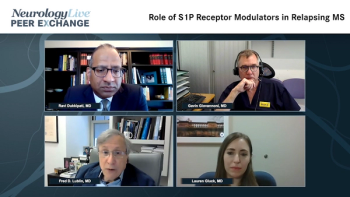
Expert neurologists discuss the role of sphingosine-1-phosphate (S1P) receptor modulators in relapsing multiple sclerosis including vaccine considerations and pediatric use.
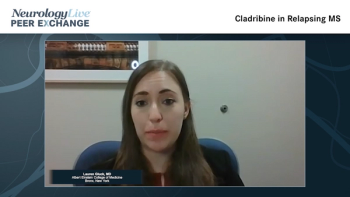
Key opinion leaders provide insight into the use cladribine for relapsing multiple sclerosis including durability and safety profile.
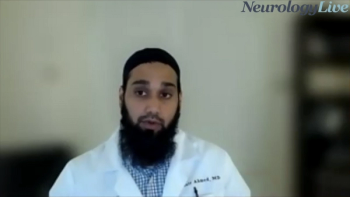
The neurologist from Cleveland Clinic discussed the importance of studying real-world outcomes in patients with migraine using CGRPs such as eptinezumab.